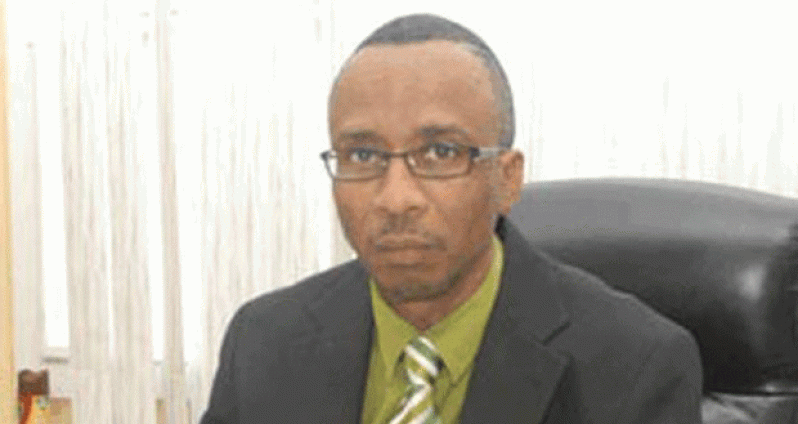By Keith Burrowes
THIS week, I would like to take a new look at developmental aid to Guyana; how we engage the tens of millions of US dollars we benefit from annually.
There is no under-estimating the enormity of developmental aid resources being channelled into this country, both in terms of the sheer scale of what amounts to investment in the economy, as well as what it means for our local development, particularly within the sectors in which the money is intended to support. A significant part of our infrastructural development, for example, has been facilitated and continues to be facilitated by the donor community.
Whenever the dust of the occasional controversial NGO accountability report is not there to obscure one’s vision, certain key facts remain. First, it is Guyana’s continued credit-worthiness which underwrites the donor community’s commitment to developmental aid, a credit-worthiness defined by parameters of accountability and transparency created by the donor agencies. Another is our capacity to manage the resources allocated to us – no matter the apparent greatness of the need – no donor will fund a project that that agency thinks has the potential to, or will, fail.
After roughly over a decade of working with donor-related projects, I’ve noticed that concurrent with the influx of donor funding over the past five years or thereabouts, there is a growing role for Guyana in creating and maintaining the parameters within which aid is disbursed. I remember years ago, when project proposals were either being undertaken completely by the donor agency staffers or by donor-appointed consultants without much input from key individuals working in the particular sectors.
However, what has been currently observed is an increased capacity of Guyana, as a country, to define exactly how aid is channelled into developmental projects, via involvement in the conceptualisation of project proposals, for example. This, it must be stated, has been made possible through what has been, by and large, mechanisms established by the Government working in tandem with the donor community. Thus, today, more proposals are done by Guyana working in collaboration with the donor community.
I am of the view that any analysis done would reveal that the overwhelming majority of these projects are meeting the required deliverables; something I believe to be at least partially due to what has been the significant shift towards a greater local ownership of developmental aid projects. Today, not only do you have the involvement of the individual sector’s officials, you also have much more involvement (particularly in social programmes) of the direct beneficiaries.
That said, I still believe that there are some areas for improvement. Were I to grade Guyana’s capacity for defining our engagement with donor agencies, I would say a two (2) in a descending scale of one (1) to five (5), with one (1) being the pinnacle.
I believe that there should be a formalised multi-sectoral mechanism for negotiation with the donor community, an established process which allows greater involvement of related sectors, even though the proposals revolve around a specific sector. Such mechanisms do exist; what needs to be undertaken is an enhancement of them, to even more deliberate, focused operations. I doubt, for example, that as currently constituted those mechanisms allow for the adequate sharing of information among sectors, even though information is the key tool in any negotiation process.
An enhanced mechanism would include, as I have proposed in a previous column written almost a year ago, a structured database for the efficient storage and retrieval of information on donor-funded projects, accessible to those in charge of policy formulation.
Understandably, the enhancement of existing mechanisms to the sort of overarching mechanism I am proposing would inevitably take some time. Pending its development, there are other focused, as opposed to incidental, ways to simulate it both in the pre-development and implementation stages of projects. For example, in the recruitment of persons hired to directly support the implementation of projects, there is the reality of better qualified candidates being persons with expertise, obviously, in the sectors in which they are recruited. Development is, however, always contextual – inherent in the term sector is the presumption of a greater whole, and therefore some orientation mechanism could be put in place to provide persons recruited to individual sectors, with a picture of the greater development environment in which they are operating.
Another option is to tailor the implementation of projects to benefit sectors other than that for which the funding is granted, once whatever measures taken toward this end do not contravene the conditionalities under which the aid has been granted.
My point is that territoriality is counter-productive to the management of development aid – there can be much more value added with the involvement of various but related sectors. The very fact of Guyana’s smallness both creates the potential as well as the necessity for a more synergistic approach to managing aid. We have already proven that we have the capacity to manage donor contributions to our development in keeping with the main indicators of the specific project. However, we now have the opportunity to be creative in ensuring not only that we garner maximum value for money from aid, but also to find ways of ensuring sustainability in the event of the cessation or diminishing of that aid. To act otherwise is to do so on the presumption that the donor funding we are receiving comes from some infinite source, which is anything but the reality.




.png)









